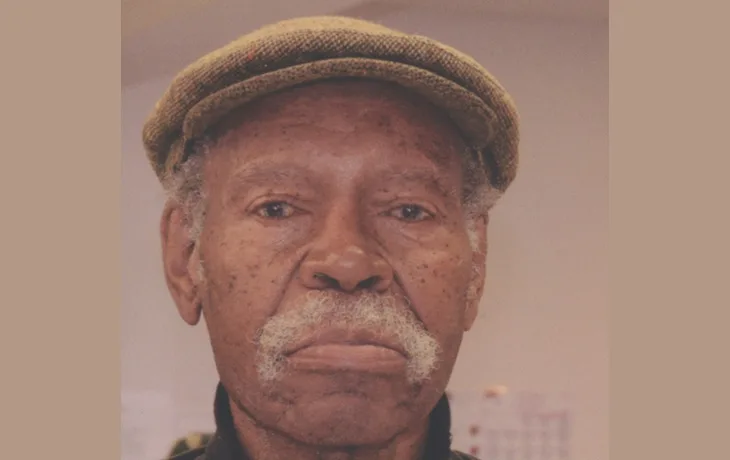Getty Images Stock Photo
by Fred Logan
Far and away, the countless marches, rallies, meetings, and drug rehabilitation programs launched in the Black community have led the struggle in Pittsburgh against illegal drug trafficking.
But not everyone is willing to heed the invaluable lessons of the struggle. Some folks want to hear only what they want to hear. That is often very obvious. When you suggest something to one then they will keep walking, backing away from you all the time you are talking.
Some of these people have proposals for public funding before some public or private funder. They have a vested interest in the muddled “disease” argument. And they immediately reject any lessons from African American struggle that do not jive with their funding proposal.
Across the United States Black people have, without question, led the struggle against narco-gun violence. Yet in the face of all of this concrete factual evidence, even totally discredited big time mainstream White VIPs have the gall to say to the U.S. news media that the Black community is apathetic on gun violence. One example is the “January 6” accomplice and former New York City Mayor Rudy Giuliani. The God Father of the Blue Dog Democrats and former US president Bill Clinton is another one.
Compare that with this: Former Pittsburgh police commander Earl Buford said outright during a 1993 Homewood Roundtable meeting held at the Greater Pittsburgh Coliseum that the Pittsburgh police had not always welcomed “community support.”
In June or July of 1982, then Pittsburgh Police Chief Robert Coll told the local news media that the open drug problem plaguing Homewood was not the community’s business! Go ask long time local community developer Malik Bankston, if you don’t believe me.
And that jives with this: Former Pittsburgh police commander Herman Mitchell gave concrete specific examples that the US establishment did not really care about the illegal drug problem in the national Black community. Commander Mitchell was speaking one Saturday morning during a community meeting at Christ Missionary Baptist Church in Homewood. Both Buford and Mitchell were African Americans. Coll was not.

FRED LOGAN
The Black community must study history of city sponsored programs such as Weed and Seed and Community Oriented Policing (COPS). And must ask what were they about?
Often, gun violence occurs on the street in Homewood or some other majority- Black city neighborhood late at night when the community is at home sound asleep. And the whole community is said to be the blame. Is that logical?
If some Black folks who live in say in Pittsburgh’s 12th Ward make this charge against the whole community, then they are also to blame when gun violence erupts in the 12th Ward.
The Black community must study the history of drug trafficking in Black Pittsburgh and adapt the strategy and tactics of the heroic Vietnamese people and the heroic people of Guinea-Bissau and turn our “weakness into strength.”
In Homewood, our point of reference, years back the community organized several marches and rallies against open outdoor illegal drug trafficking which in total drew hundreds of Black people. The events were funded entirely from resources in the Black community.
The Black community must rely on itself to fund its political struggles. The struggle against drug trafficking and narco-violence is a political struggle. As the NYC based, former NBUF chairman Reverend Herbert Daughtry told Black people years ago, we “can’t battle and beg at the same time.”
The late Bill Norman, with the Homewood/East Hills No Dope Coalition and the 13th Ward Vote & Struggle! organization, first proposed the 1985 and 1989 “No Dope Sunday” events which drew thousands of people. The Reverend Alfred Pugh, then of Pittsburgh’s Macedonia Baptist Church, said some twenty area Black churches with over 20,000 members took part in the April 1985 “No Dope Sunday.” These events were also funded entirely from resources in the Black community.
Today, the “No Dope Sunday” tactic still has tremendous potential. First, it can raise community awareness on the illegal drug crisis in the community. It also brings community religious institutions together on the issue. In motion, we move to “turn our weakness into strength.”
Just yesterday, White folks across Pittsburgh laughed and mocked at drug addiction in the Black community and said, “Hey. That’s a Black thing, we (White folks) can’t understand.” In the past, social problems that first increased in the Black community have several years later increased in mainstream White America. Look at the current increase in White male and female drug addicts now on the streets of Pittsburgh. Keep a close watch for the increase of narco-gun violence in mainstream White America.
Today, America’s instability in Pittsburgh’s Homewood, in Central America and elsewhere has come home to roost. Mainstream America is more instable today than at any time since the America Civil War of the mid-19th Century.
The U.S. Republican Party seems hopelessly instable. The same holds true for the U.S. Democratic Party. And the GOP and Democrats oppose each other like they are on the battle field, at war, in armed conflict.
In this “Made-in-the-USA” instability, the Black community surely must recall one of the countless axioms of African American social thought. To wit, “What goes around, comes around.” Do you agree????


